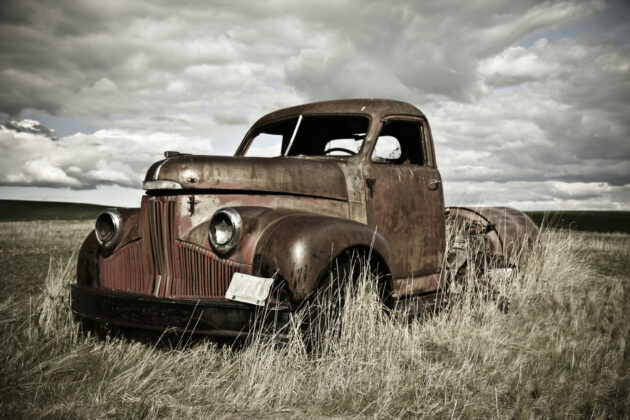Recognizing the good, the bad, and the ugly past
When I hear the term ‘The good ol’ days,’ I’m reminded of the expression that: The good ol’ days were old, and it’s good they’re behind us.
We often have a glorified idea of history. I love old trucks. They look so cool. It’s interesting to see what was groundbreaking technology back in the day. I’ve had the opportunity to drive some restored vehicles and those are memories I treasure.
But…there’s always a but. I can’t imagine driving them every day. In the ’80s we had a ’50s-something single axle Ford to haul grain and hay bales. It ran great within a three-mile radius but no further. In that beat-up rattletrap there was no nostalgia involved.

It was hard work. For a 14-year-old boy it did enough to whet my appetite for bigger and better trucks. I’m thankful that we didn’t have what most others had at the time, because it gave me an appreciation for when I was in something better.
I was told about the beginnings of the farm, including the good, the bad, and the ugly.
How often do we do this today? Are we only talking about the glory days? Do we only talk of our successes? What about the failures?
We actually do a huge disservice when we gloss over our past. Why does this matter? I don’t know who first said this but “those who ignore history are bound to repeat it.” World’s history of wars is mostly written about by the victors and from their point of view. What about the other side? Looking back in history we should hear it all. Not just the good.
This is important and relevant in trucking today. As shipping demand rises there’s a rush to expand by buying more equipment. So quickly we forget small issues like the lack of drivers, low rates and facility space. What was it like six months ago? A year? Or two? It takes so little time for entrepreneurs to forget tough times.
This isn’t just related to the short-term crunch. When doing business forecasts, we often gloss over, or are not even aware of, historical issues. Multigenerational companies can have conflicts between the different generations. Navigating those pathways successfully is often based on relating history correctly.
It’s critical for the next generation to have an understanding of the business roots that made them successful and the pitfalls that may have put undue stress on them as well. I remember working with a carpenter who was legendary for his thriftiness. He was mocked by others who didn’t know his history.
This man came through WW2 and his family lost everything. He never wasted anything, knew he was a little too extreme, but passed on to his children a great work ethic and values.
This true view of history is applicable everywhere. It’s really cool to spend some time driving an antique truck, but we quickly realize that doing it long-term is not much fun. There’s a reason why equipment has evolved the way it has.
The trick for manufacturers has been to keep the traditional, and blend the new technology into it. Those that weren’t able to are no longer around. Others that have achieved that blend and aren’t around today have failed for other reasons. Sometimes companies have survived by sheer dumb luck. Some have been incredibly smart and failed. A few refuse to give up and struggle until things work out.
Whatever your history is, own it. The good, the bad, and the ugly. All of it can be used for improving today.
Have your say
This is a moderated forum. Comments will no longer be published unless they are accompanied by a first and last name and a verifiable email address. (Today's Trucking will not publish or share the email address.) Profane language and content deemed to be libelous, racist, or threatening in nature will not be published under any circumstances.